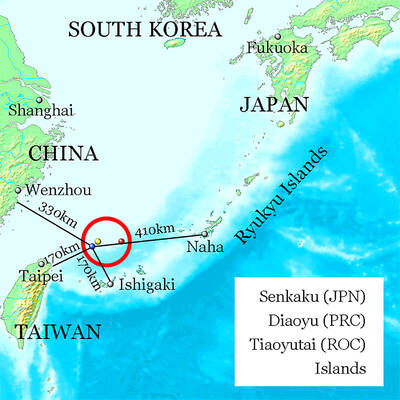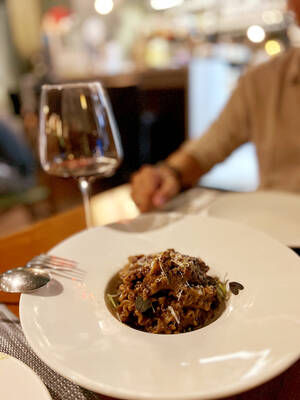Ang Lee's (李安) spy thriller Lust, Caution (色,戒) is leading nominations for this year's Golden Horse Awards, organizers said Saturday.
His film Lust, Caution is nominated for 12 awards, including the coveted best director and best film, for the 44th awards to be handed out in a ceremony scheduled for Dec. 8.
Chinese actress Tang Wei (湯唯) plays a resistance spy in Lust, Caution who slowly falls for her target, a powerful political figure played by Tong Leung Chiu Wei (梁朝偉), in Japanese-occupied Shanghai in the 1940s.
She is vying for the best leading actress award against film veteran Joan Chen (陳沖), The Home Song Stories (意), Li Bingbing (李冰冰), The Knot (雲水謠), and Yu Nan (余男), Tuya's Marriage (圖雅的婚事).
Leung is up for best leading actor and faces strong competition from fellow Hong Konger Aaron Kwok (郭富城), The Detective (C+偵探), China's Zhou Benshan (趙本山), Getting Home (落葉歸根), and Singapore's Gurmit Singh (葛米星), Just Follow the Law (我在政府部門的日子).
The film The Home Song Stories, which depicts the troubled love affair between a nightclub singer and an illegal Chinese immigrant in Australia, is nominated in seven categories, including best film and best supporting male actor.
Taiwan's pop music prince Jay Chou's (周杰倫) directorial debut Secret (不能說的:秘密) about a mysterious romance between two music students, follows closely with five nods.
Lee's film Lust, Caution, called Se, Jie in Chinese, is competing with The Home Song Stores, Tuya's Marriage, Getting Home and Qing Fei De Yi (情非得已之生存之道), directed by Taiwanese director Doze Niu (鈕承澤), for best film.
For the best director prize, Quanan Wang (王全安), Tuya's Marriage, Yau Nai-hoi (游乃海), Eye in the Sky (跟蹤), and Yang Li (李楊), Blind Mountain (盲山), will challenge the acclaimed Ang Lee.
The Golden Horse Awards are styled on the US Academy Awards, popularly known as the Oscars, but are decided by a jury along the lines of the Cannes film festival.

Last week gave us the droll little comedy of People’s Republic of China’s (PRC) consul general in Osaka posting a threat on X in response to Japanese Prime Minister Sanae Takaichi saying to the Diet that a Chinese attack on Taiwan may be an “existential threat” to Japan. That would allow Japanese Self Defence Forces to respond militarily. The PRC representative then said that if a “filthy neck sticks itself in uninvited, we will cut it off without a moment’s hesitation. Are you prepared for that?” This was widely, and probably deliberately, construed as a threat to behead Takaichi, though it

Nov. 17 to Nov. 23 When Kanori Ino surveyed Taipei’s Indigenous settlements in 1896, he found a culture that was fading. Although there was still a “clear line of distinction” between the Ketagalan people and the neighboring Han settlers that had been arriving over the previous 200 years, the former had largely adopted the customs and language of the latter. “Fortunately, some elders still remember their past customs and language. But if we do not hurry and record them now, future researchers will have nothing left but to weep amid the ruins of Indigenous settlements,” he wrote in the Journal of

Even after years in business, weekend tables here can be booked out a month in advance. The price point far exceeds its competitors. Granted, expectations are soaringly high, but something here failed to hit the high notes. There are a few telltale signs that a restaurant relies solely on outstanding food to create the experience, no gimmicks or distractions needed. La Mole is such a restaurant. The atmosphere is food-forward, with an open kitchen center stage. Our tables are simple; no candles, no dim lighting, no ambient music. The menu is brief, and our waiter directs most

If China attacks, will Taiwanese be willing to fight? Analysts of certain types obsess over questions like this, especially military analysts and those with an ax to grind as to whether Taiwan is worth defending, or should be cut loose to appease Beijing. Fellow columnist Michael Turton in “Notes from Central Taiwan: Willing to fight for the homeland” (Nov. 6, page 12) provides a superb analysis of this topic, how it is used and manipulated to political ends and what the underlying data shows. The problem is that most analysis is centered around polling data, which as Turton observes, “many of these